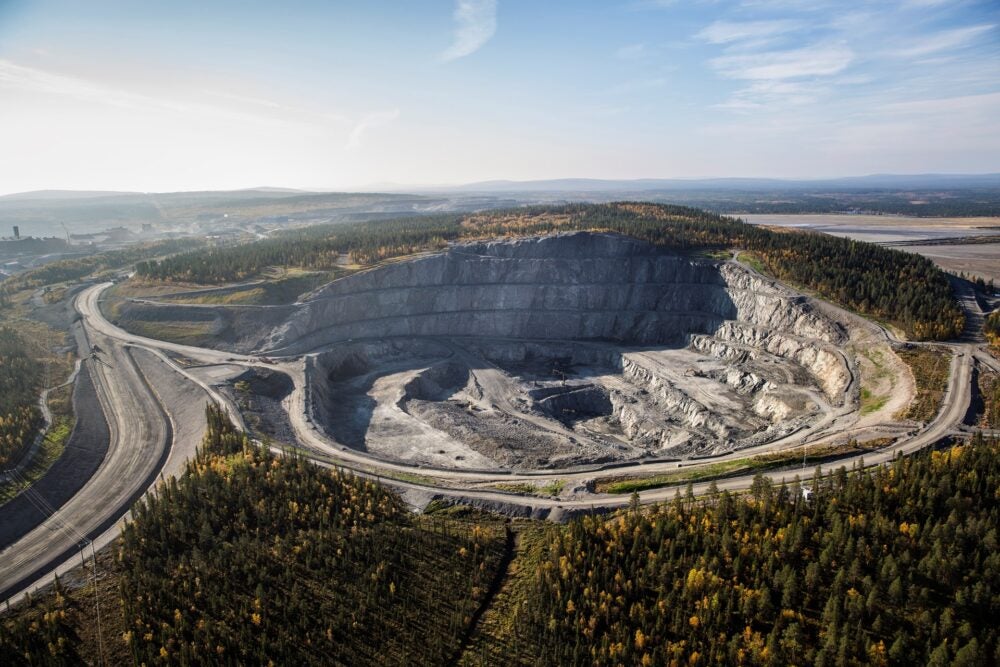
Sweden’s LKAB has announced plans to invest significantly in developing carbon-free iron ore.
As part of the state-owned miner’s new strategy, which involves “radical changes in the company’s operations and a new position in the market”, it will pump up to 400bn Swedish Krona ($47bn) into its operations over the next 15 to 20 years.
LKAB said that over time, sponge iron produced using green hydrogen will replace iron ore pellets, opening up the way for a “fossil-free iron and steel industry”.
LKAB transformation the biggest in company’s 130-year history
Its new strategy also sets out the path the company will take to achieve net-zero carbon emissions from its own processes and products by 2045 and secures the company’s operations with expanded mining beyond 2060.
LKAB’s president and CEO Jan Moström said: “This is the biggest transformation in the company’s 130-year history and could end up being the largest industrial investment ever made in Sweden.
“It creates unique opportunities to reduce the world’s carbon emissions and for Swedish industry to take the lead in a necessary global transformation.
“The market for iron and steel will grow, and at the same time the global economy is shifting towards a carbon-free future.
“Our carbon-free products will play an important part in the production of railways, wind farms, electric vehicles and industrial machinery. We will go from being part of the problem to being an important part of the solution.”
Switch to carbon-free iron ore offers LKAB opportunity to double its turnover by 2045
According to LKAB, the market for steel is forecasted to grow by 50% by the year 2050, which will be achieved by an “increase in the upgrading of recycled scrap in electric arc furnaces”.
The iron and steel industry currently accounts for more than a quarter of industrial emissions and for 7% of the world’s total CO2 in the atmosphere.
The global market price for recycled scrap is now twice that of iron ore pellets. The miner claims the carbon-free sponge iron that will in time replace iron ore pellets as its main export product is suitable for arc furnaces, allowing the company to “offer industries throughout the world access to carbon-free iron”.
Moström said: “In switching from iron ore pellets to carbon-free sponge iron we are taking an important step forward in the value chain, increasing the value of our products and at the same time giving our customers direct access to carbon-free iron. That’s good for the climate and good for our business.
“This transformation will provide us with good opportunities to more than double our turnover by 2045.”
During the transformation period LKAB will supply iron ore pellets in parallel with developing carbon-free sponge iron.
But to reach its new strategy’s goals, the miner said “rapid solutions must be found for various complex issues” – including permits, energy requirements and better conditions for research, development and innovation within primary industry.
Moström believes the company’s transformation will “dramatically improve” Europe’s ability to achieve its climate goals.
“By reducing emissions primarily from our export business, we will achieve a reduction in global emissions that is equivalent to two thirds of all Sweden’s carbon emissions,” he added.
“That’s three times greater than the effect of abandoning all cars in Sweden for good. It’s the biggest thing we in Sweden can do for the climate.”




